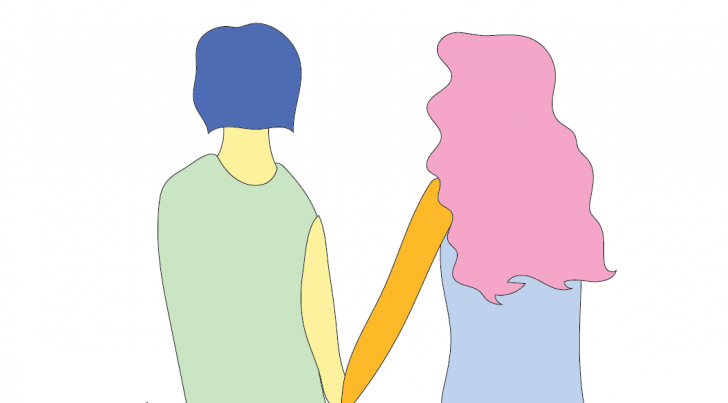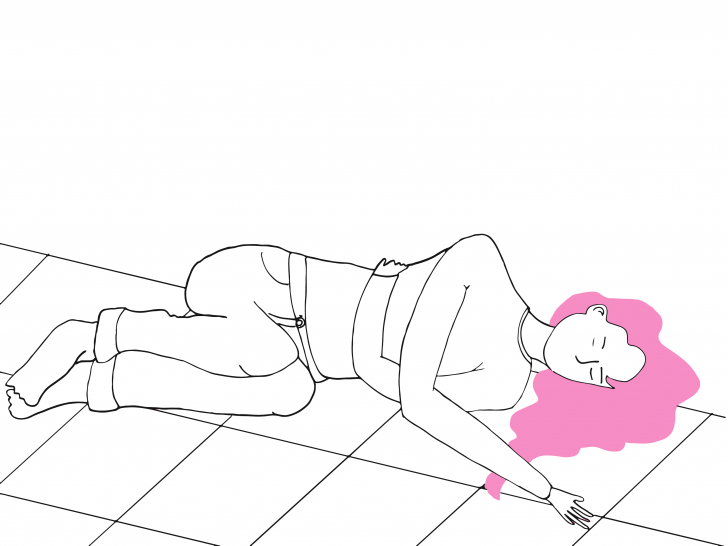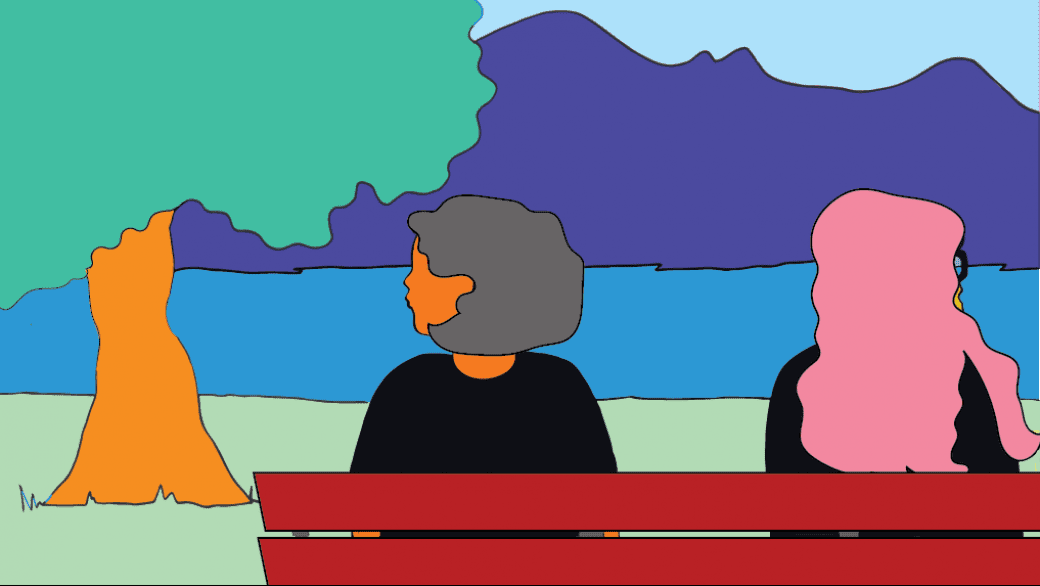Last month, the afternoon sun flooded into the hall at Keating Farm. My cousin, the bride, stood before the justice of the peace, facing her husband-to-be. She looked exquisite and — judging by his cheshire grin — her fiancé felt the same way. Surrounded by audible sniffles, I looked over at my mother. Watching as tears slid down her cheeks I could only wonder: will she ever cry tears of joy for me?
I never had any desire to get married. Even as a teenager, I busied myself with dreams of illustrious careers and international explorations, not of wedding dresses and floral arrangements.
My parents were one of the few couples in our community who hadn’t separated or divorced. Their relationship always inspired me; they were truly best friends as well as partners. Still, for some reason marriage never got anywhere near the top of my bucket list.
My mother and I always were always close. Growing up, we were able to talk candidly about most things. But somehow, when it came to sexuality, we would fall silent. I routinely received books instead of discussion, and the lessons I did receive were often tainted with conservative assumptions stemming from my mother’s own coming of age in Guatemala.
Both of my parents were Catholic, and I spent much of my youth at a small private Catholic school. Marriage was glorified in our community. Sex, it seemed, was better not talked about.
My mother never tried to change my lukewarm feelings about marriage. But, as I watched her celebrate friends and relatives’ engagements and wedding ceremonies, I could see that she hoped, one day, she would celebrate mine.
I became increasingly jaded as I started dating. Despite having several boyfriends throughout high school and college, the idea of spending the rest of my life with any of them made me anxious, not excited. In all likelihood, these thoughts made it difficult for me to invest in my relationships, and I ended just about every one I was ever in.

“I thought back on my past encounters with men — my first kiss, my first time, and all the times that followed — realizing I had never felt a fraction of the things I was currently experiencing.” Credit: Ludmila Leiva/Daily Xtra
My worldview changed when I was 19 years old. I was living in Barcelona when I met a woman at a friend’s party. Though it was a few weeks before Christmas in 2010, the Mediterranean climate meant it was still balmy enough to wander through the cobblestone streets without a jacket.
We took the Metro to a nearby club. All night, my eyes lingered in her direction. When we finally began talking, I felt as though I’d entered a parallel dimension.We spent the winter together exploring gothic alleys of the city and each other’s bedrooms. All the while, her French-accented Spanish never stopped giving me heart arrhythmia.
When I was with her, everything felt easy. But when I was alone, my mind filled with menacing questions.One night, I collapsed into my bed, consumed by my looping thoughts: what was I doing? I thought back on my past encounters with men — my first kiss, my first time, and all the times that followed — realizing I had never felt a fraction of the things I was currently experiencing. I lay in bed that night staring at the ceiling and listening to the sound of traffic outside my window. If I am queer, I thought, then I guess that’s that. I wiped the tears that had pooled in the corners of my eyes, a peaceful feeling washing over me.In the spring, she took a job in Berlin.
I visited once, but in August it was time for me to return to Canada. We exchanged emails for months, sending hesitant paragraphs laced with longing. But, the messages gradually dwindled, and soon I learned she had a new boyfriend.We had never put a label on our relationship, and after I left Europe, I reconciled with the fact that such a distance would never offer much promise. But I was devastated. I constantly wondered how she was doing, and seeing her name in my inbox still made my heart jump. But, determined to ground myself in my physical reality rather than a relationship of text and pixels, I stopped reaching out and we lost touch.
Though it would be inaccurate to suggest that this relationship made me completely reconsider my positions on marriage, it did stretch the boundaries of my imagined future. Perhaps, I thought to myself, I wasn’t interested in marriage because I had previously doubted the existence of someone with the power to captivate me. She may not have been the elusive “one” we are all conditioned to search for, but she did help me grasp what I had so much trouble understanding before: that finding someone I could love was, indeed, possible.
In January, a few months after my return to Vancouver, I found a message from a girl in my Tumblr inbox. After bonding over a shared love of politics, social justice, and the Lord of the Rings, we decided to meet. Though I had been with other women since coming back to Canada, I was nervous.We met for dinner at a popular vegetarian café on Vancouver’s west side. Much of our night was filled with drawn out silences in between bites of veggie pad Thai and apple pie, but at that dark, candlelit table, my world was slowly turned upside down once again.
For the second time in my life, I was confronted by a glimmer of romantic possibility that had eluded me for so long. We went on to date for four years, and I spent my time with her learning how to love—not only her, but myself.In the end, the latter proved to be my greatest challenge.

“We said goodbye, and I watched her get into her car. After she drove away, I let myself back into my empty studio apartment where I cried myself to sleep on the floor.” Credit: Ludmila Leiva/Daily Xtra
I told my mother about my relationship after four months. At first, I put off telling her because I was having trouble admitting to myself that this was who I was. But one day in late June, I felt a rush of confidence.
After a long walk, my mother and I sat down on a wooden park bench overlooking English Bay. The air smelled of freshly cut grass and sea foam. I listened as birds sang in the trees above us. But as I silently sifted through words, my mind became a perfect reflection of the choppy, white-capped waves in the distance. Finally, I managed to say the words my mouth still had trouble forming: “I am dating a woman.”
My mother had never once shown hostility or intolerance towards queer people. In fact, a close family friend in Guatemala had recently come out as gay, and my mother had assumed the role of his unofficial mentor, counselling him through the brutal homophobia rampant in his community. I was encouraged by this knowledge.
But I quickly learned that, while my mother had no problem with other people’s fluid sexualities, she had absolutely no desire for her daughter to be anything but straight.
“There is no such thing as good or bad anymore,” she said, pulling her bloodshot eyes from mine. “It’s whatever feels good in the moment.”
My mother continued to discuss, what she called, moral relativism. I sat, looking at the mountains in the distance and digging my fingernails into the damp, mossy wood. We said goodbye, and I watched her get into her car. After she drove away, I let myself back into my empty studio apartment where I cried myself to sleep on the floor.
I understood, of course, that my mother’s earliest definitions of love and partnership were formed in a late 20th-century Latin American context. In the wake of Spanish colonization, my mother’s native Guatemala — like many other regions that fell victim to Spanish conquest — had embraced a primarily Catholic culture as well as a strict gender binary built upon hyper-femininity and machismo.
And though my mother had left Guatemala decades before I was born, her early socialization left lasting stains on her. Nearly five years have passed since that afternoon in the park. My mother and I have since tried to fill the holes our conversation left behind, but have succeeded only in compartmentalizing our relationship.
Today, we abide by an unspoken contract that assumes my romantic life does not exist. While, in some ways, this arrangement protects us both, it also means that there are many things about me that my mother does not know.
I still struggle to cleave apart my mother’s happiness from my own. I do not know if I will ever get married, or whether my mother will cry tears of joy if I do. But each day, I strive to remind myself that my life is sacredly and intrinsically mine. Somehow, in spite of everything, I find solace in this fact.


 Why you can trust Xtra
Why you can trust Xtra


